

This is part three of our fictional technology apocalypse series about a global hacking attack that took out the power grid around the world.
The four stories we’ve been exploring include:
If you missed part one and two, make sure to read it first. And now, for the next radio broadcast from week 2 of the ongoing global crisis.
*****
United Nations Security Council Emergency Radio Broadcast: February 22th, 2018 @9:30 A.M. New York time.
*****
“Citizens of the world. This is Ambassador Alexandre Durand, the acting President of the Security Council of the United Nations.
First, I am sure many of you are concerned after these broadcast ceased for the last 7 days. I would like to take this time to set your minds at ease.
Immediately following the terrorist hacking attack that, as you all know, left the world largely without power and exceeded any disaster ever predicted or planned for — emergency systems intended for maintaining critical satellite and radio communications automatically went online. In fact, it’s thanks to this system that we were able to send out the first two broadcasts.
Less than 72 hours after the initial attack, these secondary emergency systems were under a second attack from – we presume – the same attackers as the earlier attack. During this attack, the hackers utilized highly-secure, classified “back door” emergency networks meant only for highly-specialized technicians. We were required to pull together all available resources from every member state and throughout our own organization – both personnel and all energy – into fending off these new attacks, in order to protect our remaining critical infrastructure.
The good news – the situation is once again under control.
However, much has happened during the past 7 days. Not all of it is good news, I’m afraid.
The damage to the original power utilities were far worse than expected. Reports from the main utility services within every member state report that replacing or repairing the damaged transformers will likely take several weeks. Meanwhile, smaller, decentralized power grids have been reported to be running and will continue to supply electricity to critical infrastructure.
In the meantime, the disaster management plans set up by local governments for crisis situations like this one are now taking effect, and by now you all should have heard from your local leaders regarding the emergency plans for your local community, to preserve the health and security of every citizen during this difficult time.
Where available, military, police, and technical services, as well as emergency crisis units such as the Red Cross, Maltese and others, have been fully deployed to help secure critical infrastructure, to assist in emergencies, to preserve the peace, and to distribute clean water and food, and set up shelters for people who are not able to heat their homes. You should already be aware of those personnel quite active in your local communities.
For the time being, your governments have enough resources to maintain these critical emergency services for the time major utilities are saying it will take to restore power. However, as in any crisis situation, you should always be prepared for the worst case scenario. This means, start putting a plan in place to sustain yourselves and your families, without external help. While we do not expect this situation to reach that point — being prepared is only smart.
Remember, being self-sufficient as an individual takes a lot of work, but being self-sufficient as a community is the only way it works. Reach out to your neighbors. Offer help, receive help, and share and exchange resources. As local communities and as a global community, we will get through this, even stronger than ever before.
This message will repeat hourly, and will be updated in 72 hours.
Stay safe, and work together.”
-by Christian Cawley
The branch weighed heavily in Kevin Morley’s hand, but he was equal to the challenge. With precision timing, he stepped from behind the parked camper van, swinging the weapon into the face of the oncoming biker.
After a week, the torment was over.
Since the VW broke down, Kevin and Dominic had been sleeping in the camper, heading towards Scotland, to higher ground. Escaping the industrial wasteland of Teesside was the first priority, and the Borders seemed like the best option. The Beast would never stop coming, and what little government resources were on offer were being focused on metropolitan areas.
Just a day before they’d set off, all available diggers were being used to build a trench around the N0v4 x18 to prevent – or slow – its expansion. Depending on the weather, they’d probably gain one or two days, enough for people to evacuate.
The problem with that, of course, was that no one really knew the danger. By now, The Beast would have swallowed up everything in its wake at sea level. It would keep on coming. Kevin knew this; a handful of others listened to him (one particularly fraught evening in the pub proved this) but no one wanted to leave their homes, even in the face of impending doom.
Twitching, the dying body of the last of a trio of dirt bike riders reminded Kevin of a quickly discarded mannequin. Their campaign of terror against him – resisting all attempts at conversation, riding past on their noisy bikes in the middle of the night – seemed nothing more than a reaction to his presence on what they seemed to consider their land, an abandoned campsite in the Lake District.
Checking the bandage across his sleeping son’s belly, Morley set to work emptying what little diesel was left in the tank of the last dirt bike, siphoning it into the camper. These kids – they must have been 20 at least, and in days past would probably have had jobs – had clearly been draining off what little supplies were left on site; the maintenance vehicles were all empty, after all, as were the couple of abandoned cars.
Leaving home had been tough, and Kevin had begged his mum to come with them. But she was insistent that they travel without her, that she would see it out, and play her part in the community, just like her parents had “during the war”. No matter how hard he tried, she didn’t want to leave the home that she had bought four decades earlier, even if it meant dying there.
“There’s nowhere I’d rather be, if this is the end,” she smiled, looking at the grand framed photo of her wedding day, still hanging above the fireplace, just as it had when Kevin was a boy.
So they left, just the two of them – father and son, but comparative strangers.
“Are we going to see mummy again?” After an hour of silence (Kevin had only used the radio hourly, just to check if the latest UN message had been updated), that was the first thing Dominic had said to him, communication to this point only being by nod and shrug. His mother had died just a few weeks before, thrusting the two of them back together, six years after Morley had walked out on the infant following a… disagreement with Rachael’s parents.
With a gallon of diesel collected from around the campsite (mostly from the now ownerless trio of dirt bikes), Kevin Morley was ready to leave. Part of him had regretted leaving since they found themselves stranded; Dom’s injury, inflicted while rushing to protect the camper from the dirt bike kids, had used up most of the medical supplies. Most importantly, Kevin had to get to a dispensary and find some antibiotics. Preferably one that was staffed, as attempting to break into the site chemists yielded nothing but a snapped crowbar.
While he was confident that the broken glass was all removed from Dominic’s tummy, the wound had this past day become infected. Despite the encouragement of the latest UN broadcast, Morley doubted that things were going to hold together for long. His aim remained the same – head to the borders, to higher ground, find an old shack, and bring up the boy safely.
Thirty minutes later, they were back on their way. Dominic had stirred a little, but his fever kept him asleep. The downloaded map on his iPad had earlier indicated that they would soon be passing through a small town. As they reached the center of Levick, he slowed the VW, looking for a chemist. Spotting one at the other end of the main street, he pulled the camper over, and entered the store.
“I’m afraid we’re not really open, sir,” came the friendly voice from behind the dusty counter. An Indian lady in a slightly grubby white coat offered a smile, one hand on the counter, the other hanging suspiciously out of sight.
Kevin took a breath. Facing The Beast suddenly seemed like the better option.
“My boy had an accident with some broken glass. I need some antibiotics,” he offered, keeping both hands in his pockets.
A light flickered in the back room of the chemist’s store.
“You’ve got electricity?”
“It’s battery powered. The bulb has been on its last legs for days.” She smiled, placing her second hand on the counter, revealing a stained meat cleaver. “I know how to use this.”
Ignoring the threat, he met the chemist’s gaze. “Do I need to bring him in here, or will you give me what I need now?”
“Our local policeman was diverted to Penrith. Our doctor had to go to Newcastle. We’re a small town, sir, and this chemist is for local people.”
“He’s eight year’s old.”
“I’m going to ask you to leave sir. Please don’t make this any more difficult than it is already.”
The atmosphere changed somewhat. Kevin Morley felt the breath of another on the back of his neck.
“‘Offer help,’ that’s what Durand has been telling us for the past couple of days. I came here for tha-” Kevin Morley felt the tip of a knife in his right side. He imagined it was as dirty as the chemist’s store.
“She asked you to leave.” Whiskey-tinged breath brushed his cheek and caught his nose, and from the corner of his eye Kevin could see the sweat on the older, shorter man’s brow.
“My boy is dying, and I’m not leaving here without medicine.” He continued speaking to the chemist, ignoring the man.
“Then you leave here dead.”
-by Angela Alcorn
After waiting a whole week, we’ve finally received an update from the authorities. And guess what? We’re just going to have to stick it out. This is insane.
Okay, so it’s not all bad. With our complete lack of Internet, this has been the longest proper holiday I’ve had in ages. But, some holiday, huh? Yes, I know many people come to the South of France to unwind and drink wine on their holidays, but this situation is somewhat different. In between all the wine and cheese is a huge amount of stress and an underlying thought that we should be doing more to fix this. But what to do?
My plan to get the Serval mesh network up and running has worked, so I’m in communication with a number of people who are still managing to charge their phones. It’s comforting, but as there’s nothing actively happening there’s not a lot anyone can achieve by even having the network in place. I guess it will be more useful as people get hungrier and less complacent, though. Fun times ahead.
We’re all sick of cleaning ourselves in cold water, but I can’t see the point in wasting good cooking fuel on warm water. Cleaning clothes manually is a complete pain too — it takes so much time!
Honestly, this week hasn’t been all bad, though. I went to the market on Saturday and there were actually plenty of stalls up. I guess the people with produce figure that it’s still best to get the food out there to the rest of the town than to let it rot.
Surprisingly, I noticed that our local restaurant was actually open, preparing the food from the fridge and freezers that hadn’t quite gone off yet. I was definitely not expecting that, but I guess they figured that serving what’s left of the food and collecting a few cheques was better than doing nothing at all. Saturday was also our anniversary, so we got to have a lovely candle-lit restaurant dinner after all. That was the last hurrah for the restaurant though, as there’s no point buying fresh food anymore unless it’s for your own family.
On Monday I headed to choir as per usual (what else are we to do, huh?), and wound up coming home with dozens of home cooked meals for the family, all preserved in mason jars. These older French women are AMAZING. Every Summer they fill up their pantries with preserves, and they never manage to eat it all themselves. So, all of these choristers brought in things to share around — we were given stews, jams, fois gras and cherry wine. I felt like such an idiot for not preserving stews myself, but also for not thinking to bring anything to share. I should have guessed they’d do this! And of course they know we’ve got kids so I was forced to take home more than anyone else.
Since Tuesday, the rest of the week has basically just been a slog. I’ve been trying to get my head around what we actually need to do to survive in the long-term. What if this lasts years? I hate to think.
It’s still too cold to plant vegetables, but I’ve pulled out all the seed packets we never got around to planting and I’m taking note of when each of them should be planted. It’s a pity I’m such a novice gardener — this is going to come down to pure luck. I do have a few good books on gardening, but I think for best results you’re supposed to have actually previously planted a few things and brought them to life.
My fabulous collection of scores, printed lyrics and guitar tabs has come in handy, giving us some tunes to sing in the evenings. It’s lovely to be bonding with the family instead of watching TV, although it’s infuriating to have the time to read all these books on my shelves, but not the light to read by. I tried reading Heart of Darkness by candle-light one night, but it put me to sleep and I could have easily burned the house down. Never again. Books are strictly for daytime from now on. Stupidly, I also have that book on my Kindle, and could have used that instead. For some reason, my Kindle is basically full of classics and business books, but pretty much nothing else.
Bruce’s project with the sewerage plant worked really well. It’s not too far from the river, so they’ve set up a water turbine to get power to the plant. Ideally, we should be setting up hundreds of these along the river banks.
Mostly, I’m worried about food. Our pantry food will last us another month or so (but we’ll be real sick of kidney beans by the end of it). There’s fresh bread, fruit and vegetables locally, but the idea of paying by cheque is starting to lose its hold. So, we’re going to need to barter for food — and what are we going to be able to offer, exactly? Our house is full of consumer electronics and books written in English, neither of which are going to be of any value to French people with no electricity.
It’s weird to think that this social contract of “going to work” is still a thing even though most offices can’t really do much and there’s no real hope that people are going to get paid or be able to use that money in the near future. So why are people still going? With Bruce, at least they’re banding together to fix things for the community. But what are other places doing? And what happens when the school teachers stop turning up? Or will we be trading directly with the teachers by bringing them food?
Strangely, school lunches are still a thing. I mean, the schools all have massive pantries and a network of suppliers that are still growing food, so the mayor figured that making sure all the kids get one hot meal at lunch time each day was a good thing. I think it’s brilliant — at least we all know that school-aged kids won’t be starving, no matter what their food situation is like at home. They’re also keeping a soup warm in the kitchens and making sure any pregnant or breastfeeding mums get fed properly when they come to pick up their older kids. I think they’re letting elderly people have whatever’s left each day, too.
-by Brad Jones
My name is Mort Milton. I am writing this in the hopes that it’s read by either my son Malcolm, his son Mark, or someone that has information regarding the whereabouts of one or both of them.
It’s been a week now since we lost power. Malcolm was called in to help out with the attack before the public was even made aware that something had happened — I’m embarrassed to say that I don’t know exactly what it is that he does, but I do know that he’s an engineer with some very particular knowledge of computers. It didn’t surprise me when he told me that he was needed elsewhere, but I would be lying if I told you that I was prepared for the situation.
Malcolm is a single father just like I was, and given how suddenly he was needed, there was no time to make the usual arrangements for Mark. I was perfectly happy to welcome the boy into my home, but that was before I realized the real extent of the situation that was brewing. A lack of power robbed Mark of all his creature comforts — his Walkman, his television, his Internet — and it’s fair to say that the youth of today are rather reliant on these things. I myself was rather less bothered by the scenario. In my youth and onward, I’ve been in many a situation where I didn’t have access to electricity or the many tenets of modern day life powered by it.
I attempted to distract Mark from the reality of the attack with the tools I had available to me. First we played chess — he didn’t like that.
As the power stayed off, I decided to try and make it into a bit of an adventure for the lad. I thoroughly enjoyed my time as a Scout Leader when I was younger, so I tried to draw upon that. I now realize that this was a mistake.
If this sort of thing had happened in my childhood days — and I realize it would have been quite a different issue back then — I think I would have liked to consider myself something of a survivor. I wanted to make this house our home base, because I thought it would give Mark something to focus on. It was half because I wanted him to stop being so bored, and half because there was no end in sight and I wanted him to be prepared for whatever happened. At first I started with the little details. Me and him used to joke around about not flushing the toilet, so I told him that was a new rule after it was mentioned on a radio broadcast. He told me I was being stupid, but I could tell some part of him was enjoying it.
We spent a lot more time together once we were treating the whole situation like a survival activity. He started to seem like he was having a bit of fun, and I have to admit that I was, too. However, I kept one eye on the fact that this was a real emergency at the same time. Malcolm had brought over what he could in terms of supplies when he dropped off Mark, but there really wasn’t much in the house. We had some tinned food and plenty of wood for the fire, but our biggest problem was a lack of clean drinking water. As our supply of bottled water started to run out, Mark started asking whether we should go out and try buying some more provisions.
I held off, and I’ll regret that forever. I’ve never been good with crowds, and over the past few years the only times I’ve left the house have been to go up to the reservoir for a spot of fishing. I wouldn’t want to be walking around a supermarket even in normal conditions, and I knew that there would be hordes of frenzied shoppers looking to buy whatever they could. Foolishly, I told Mark that we should hold off, and he listened to me.
Things started to look more and more bleak after a few days. Despite our best rationing efforts, we were burning through our resources. Malcolm hadn’t been in touch at all, which didn’t seem to bode well. On the surface, I kept up the illusion that I was having fun surviving with Mark, and I think that helped him. Looking back, I wish I’d been more up front about the situation.
When I woke up yesterday morning, I could tell that something was different — the house seemed very quiet. There was a note on the kitchen table explaining that Mark had gone out to fetch some food and water from the nearest supermarket. He promised me that he would be safe, but he still hasn’t returned home.
It’s quite possible that there’s a rational explanation for this. Maybe he happened upon a group of survivors or something like that, we just don’t know what’s out there. However, I know what this area can be like. I’ve read enough headlines in the local newspaper to know that this isn’t an area that’s good for a young lad to be walking around unsupervised. I can’t even imagine what things are like now that we’re living without power.
After writing this, I’m going to head for the supermarket and see if I can find Mark. Even if he’s not there now, surely I can talk to someone or find some kind of indication as to where he went. That boy was put in my custody, and I won’t rest until I make sure that I’ve done everything I can to bring him home, safe.
If you’re reading this, Malcolm, I’m sorry. I wish that I could have done more for you and Mark.
-by Philip Bates
22nd Feb. The announcement came out of nowhere. We’d gone a week with nothing. The shock gave me an opening. This was my chance. I picked up a gun, and aimed for the neck.
21st Feb. “Let’s rewind here,” Holly said to me, her voice jumping up an octave.
What was the point? I had the text. I had testimonial from agents in the field. I had the instruction booklet. It was him. The evidence wasn’t enough for a court to convict, but equally, Holly couldn’t dismiss it out of hand. It was enough for now. We knew.
It was just her and me in her office. The rest of Section B were reading reports.
“Look, I hate to admit this too,” I replied,” but it’s clear. Graeme said it. There’s a traitor in our midst.”
“And you’re saying – ?”
“It’s Peter. Peter helped the hackers bring down the world.”
20th Feb. Graeme came back into work, just briefly. We weren’t expecting him. He was shell-shocked. It was like his own life had ended.
It haunts me, that sound. The yell he gave out when still locked in the office, desperately trying to get out. I wonder if I’d make such a noise if Ella died so suddenly, or if recent revelations would’ve changed that reaction.
19th Feb. I spent the day gathering evidence. Officially, I was at home with Ella. We’d been married for 7 years. Would that matter?
18th Feb. Graeme hadn’t come in. Of course he hadn’t. Holly had heard from him though. An informal interview, apparently. She’d got him to describe the gun that had been smuggled into the office. Holly’s smart though; the smartest one here. She’d figured it out when she’d realised one of the framed photos was lying on the floor, hidden behind the bin.
A simple nail: that’s what had given her a clue. Even I didn’t think she was that clever.
“One of us smuggled in that gun,” Holly announced to the group.
“What about Graeme?” Peter blurted out. He wasn’t helping himself.
“No, it was one of us. Graeme knew how to trick the security system anyway; he didn’t need to make such a specific gun.”
Peter again, almost incredulously: “‘Make’?”
“Graeme found the gun – he said in a desk drawer, but he couldn’t remember who’s. Grief; it must be,” she continued. “It seems very likely that the gun Graeme found was 3D printed.”
17th Feb. “What’s the point of us now?” That’s what I heard Eva say as she left the day before. We’d been let out of the office – ¬finally – and in that mad rush to escape, we probably all said stupid things. And Eva’s parting question-come-statement was wrong. There was loads for us to do. Surveillance in the new world became a substantial problem.
Was there any point to a technician now? No need for Watchers either.
So we checked our dead-letter drops. We carried out standard brush contacts. We checked with any undercover agents still in the field. But there was a distinct lack of information. Well, there would be, wouldn’t there? It was hackers. There would only be an online trail and the Internet seemed like a lifetime ago.
We were a flurry of useless activity. I never thought I’d be there to stop a riot. Solid work, I know, but that’s for the police, not MI5 officers. Eva said it was like we lacked a proper purpose.
“Speak for yourself,” I said.
16th Feb. Graeme was on the floor, cradling his head. The glass either side of the doors was stained with white marks, ice-like indentations where bullets had hit and ricocheted off. I guess we were lucky that none of us had got hurt.
He knew they were bullet-proof, but the desperation was etched across his face. The gun had fallen from his hand and no one knew where it had gone. We had been asleep and the sudden shock of gunfire got the adrenaline rushing through our bodies. We didn’t take note of the specifics. Just that Graeme was making one of the worst noises I’d ever heard. He was crying, but there was something so terrible, so primal about it.
We hadn’t known. Graeme was always like that; very private. We hadn’t even realised he’d been using the emergency power to search surviving sites for news from the hospital. He’d called them before, and had apparently been checking in every hour. Then the phone went dead. And he found the list of hospitals whose generators had since failed.
His wife had been on life support. He should’ve been with her, but he was dedicated to MI5. Too dedicated.
In light of what we knew, Holly had very little choice but to manually open the doors and let us all out. She was second-in-command so it was her duty to stay behind. She said she was determined to find out how a gun had got in here. The rest of us abandoned the office: Graeme first, then Peter, Eva, and finally me. One of us should’ve stayed, but screw that. No one could’ve stopped us getting home.
Ella hugged me, so tight my lungs were on fire. Home seemed wrong. No proper lights – just candles. She’d emptied the tray of ice into the sink and put bottles of milk in there. They wouldn’t last long, but we didn’t know if they’d need to or not. This wouldn’t last. It couldn’t.
Even the toilet was an issue. Ella left her phone on the mantelpiece and I checked through it. I’d got quite used to it. That’s what you do when you know your wife has been having an affair. The power across Europe had died on 14th February. I’d texted her as soon as I found out.
Mobile networks had lasted for a little while. So who did she text first? Me or her lover? At the end of the world, who mattered most?
It was at that time that I realised who the traitor in MI5 had been. Peter. She had texted Peter before me. I had a purpose. All that mattered was seeing a bullet slice through his neck.
Next week, we will publish the fourth and final installment of this fictional series. This will be a radio broadcast from the UN Security Council President, another week after the last. As some lives fall apart, and others hang on by only a thread — how will it all end?
Join us next week for the final installment of MakeUseOf’s first collaborative fiction.
Image Credits:pointing a handgun by ImageFlow via Shutterstock
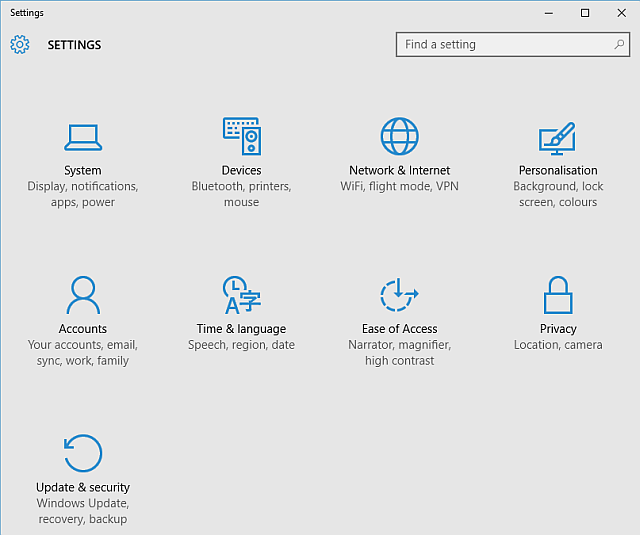


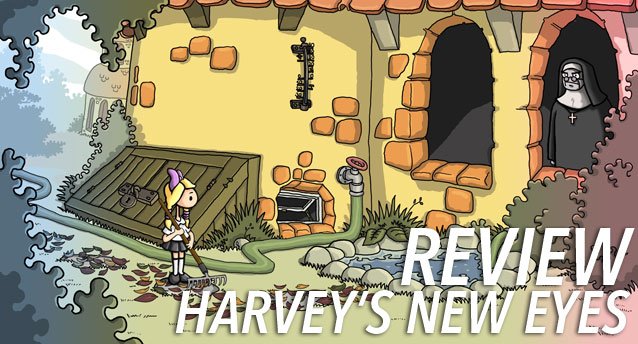
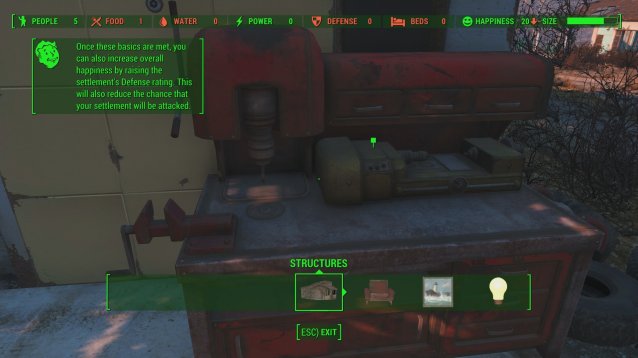 Fallout 4 Guide: Scrapping For Beginners
Fallout 4 Guide: Scrapping For Beginners APB: Reloaded Wiki – Everything you need to know about the game .
APB: Reloaded Wiki – Everything you need to know about the game .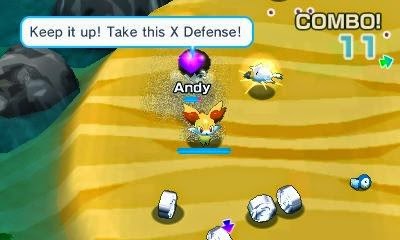 Pokémon Rumble World (3DS) beginners guide
Pokémon Rumble World (3DS) beginners guide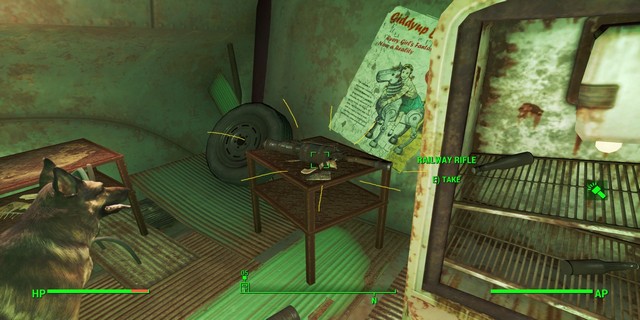 Fallout 4 Guide: How And Where To Find The Railway Rifle
Fallout 4 Guide: How And Where To Find The Railway Rifle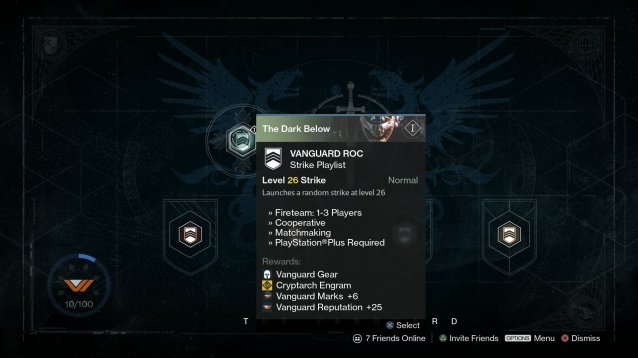 10 Best Player Moments in Destiny
10 Best Player Moments in Destiny